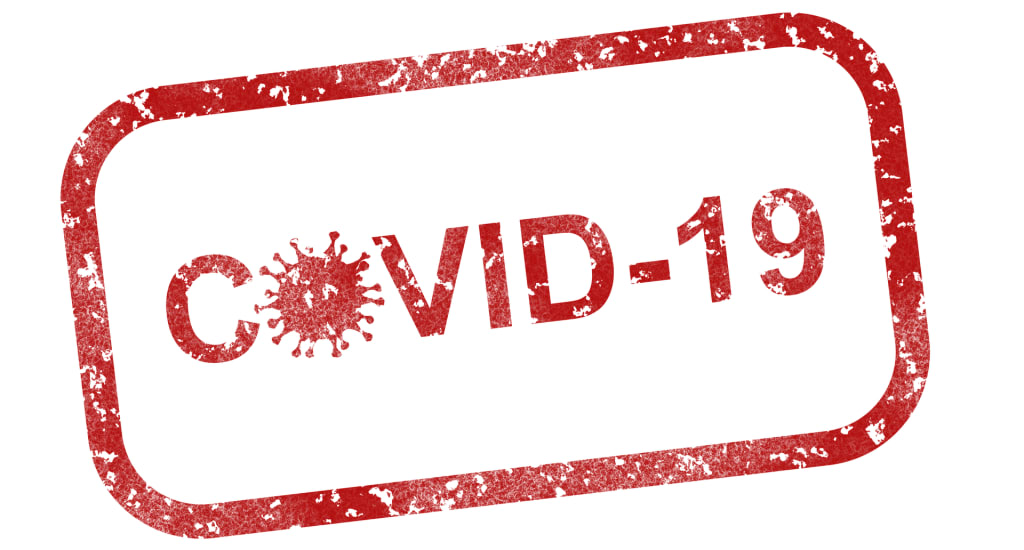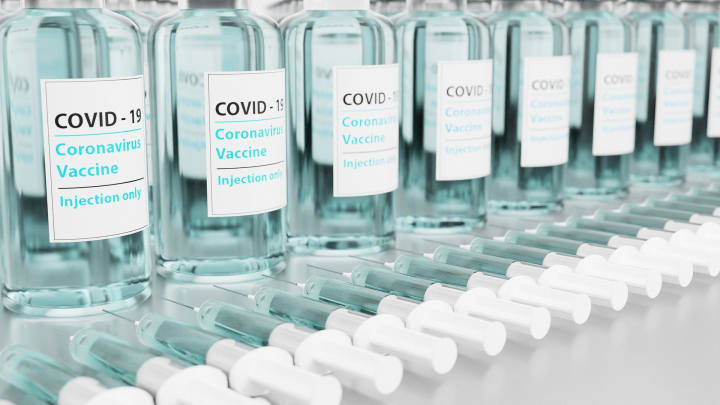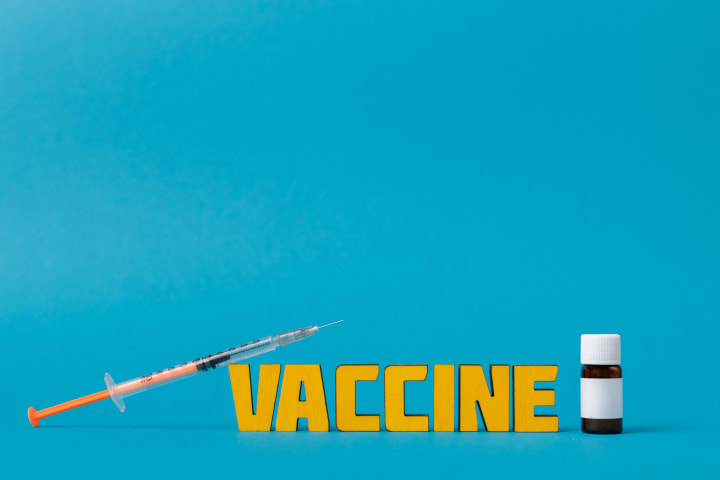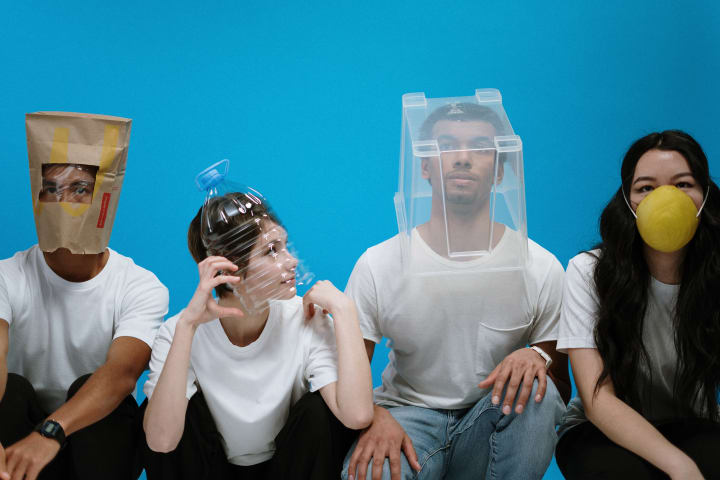The Pfizer Covid-19 Vaccine: Frequently Asked Questions Answered
With the ridiculous amount of misinformation regarding the Pfizer Covid-19 vaccine circulating the internet, here are some frequently asked questions answered.

This information has been compiled through discussion and collaboration with various members of the Pharmaceutical and Biological Sciences community.
1. “What EXACTLY is in the Covid-19 vaccine?”
Here is a full list of ingredients in the Pfizer vaccine (pulled directly from the Canadian Product Monograph) with an added aside as to why they are in there:
Active Ingredient: Modified messenger RNA (mRNA) which encodes the viral spike glycoprotein of SARS-CoV-2 (the COVID-19 virus). The spike is the part of the virus that enables it to enter our cells so that the virus can then go on to cause infection. On its own, it isn’t harmful (it will not give us Covid-19) but it allows our immune system to build antibodies against it so that if the virus ever does enter our body, our immune system can identify and attack it.
Lipids (including cholesterol): These encase the mRNA to protect it so that it can enter our cells without being broken down in the body prematurely.
Salts: Potassium chloride, monobasic potassium phosphate, sodium chloride, dibasic sodium phosphate dihydrate. These all keep the pH (relative acidity) of the vaccine at the appropriate levels.
Sucrose: Keeps the vaccine stable during transport and storage
Saline solution: Mixed with the vaccine before injection so that the injection will more or less have the same salt content as the blood.
I would like to point out that NO preservatives are included in the vaccine (no thimerosal, no formaldehyde, etc.), which are common concerns for many patients receiving vaccines in general.
IT IS CONFIRMED THAT THERE ARE ABSOLUTELY ZERO MICROCHIPS IN THE VACCINE.

2. “What are the side effects of this vaccine?”
The main side effects that have been discovered in the trials (which include tens of thousands of vaccine volunteers) are injection site pain, fatigue, headache, muscle pain, chills, joint pain, and fever — usually mild to moderate in terms of intensity and end up resolving within a few days.
Severe side effects are extremely rare. One misconception I’ve seen on the internet seems to be that the Covid-19 vaccine causes death. To clarify, six people in total died during the study — HOWEVER, it is important to mention that four of these people were in the placebo group (did not receive the vaccine) and two people were in the control group (received the vaccine). The deaths occurred due to other causes (i.e. heart attack, stroke) at the same rate they would in the general population. These deaths were not related to the vaccine whatsoever.
3. “How can we say it’s safe and effective when it has been developed so quickly? I’ve heard the mRNA vaccine technology is completely new. How do I know that it is safe?”
Many people have questioned the safety and efficacy of the vaccine after seeing it be developed in such a short period of time (myself included at first!). What makes the development of this vaccine different from others, aside from a difference in vaccine technology, is that this is the first time that the ENTIRE WORLD has come together to fund and develop a vaccine.
I mean when you think about it, the best researchers in the world coming together to work on this — pretty incredible! A lot of times in science, funding + more scientists = faster outcomes. Is this the fastest we’ve ever developed a vaccine? Yes but more manpower, massive scientific advances over the past decades, as well as the fact that Covid vaccine research has been pushed to the top of the priority list, has made this condensed timeline possible. All safety precautions were taken in the creation of the vaccine as well as throughout the entire clinical trial process.
Fun Fact: Did you know that the idea of mRNA vaccine technology first came about 30 years ago? Although there has never been an mRNA vaccine approved for distribution, it HAS been studied in human trials for diseases including rabies. Why didn’t these vaccines come to the market? Well — there was no pressing reason to continue the research given that vaccines that we had were sufficiently effective or the outbreaks no longer posed a threat (ie. SARS). There was no compelling reason (in the eyes of those funding the studies) to donate large sums of money back then to mRNA research — but there was this time around!

Okay so…what does this tell us in terms of safety? mRNA vaccines have been administered to humans in trials since 2013, and this far down the line no long-term safety issues have arisen. Using the rabies mRNA vaccine trial as an example, most side effects experienced occurred in a short period of time following vaccine administration.
In terms of long-term side effects of the Covid-19 vaccine that may be years away, it is unknown if there will be any. However, given how the vaccine actually works, these are not expected to be severe if present at all. mRNA degrades very quickly in the body and doesn’t hang around long, so the likelihood of it causing any issues down the road is minimal. The small risk of experiencing side effects from a vaccine from a scientific standpoint is clearly smaller than the risk of experiencing the potentially brutal symptoms of Covid-19.
4. “I’ve heard that vaccines cause autism, is this true? Can the Covid-19 vaccine cause autism?”
Vaccines do NOT cause autism. There have been many large studies over many years that have shown this not to be the case. This initial concern came from a single small study (involving 12 children) that a doctor published in 1998 showing a link between the MMR vaccine and autism. However, this doctor’s results were found to be incorrect and his paper was withdrawn, and he LOST HIS MEDICAL LICENSE. Every single study done ever since has shown no link between vaccines and autism.
5. “How can a vaccine go from being stored at -70 degrees Celsius to being injected into my body?”
Active mRNA is super unstable at room temperature. If we kept the vaccine at room temperature all of the time, it would degrade before it even got to the patient! So, it’s kept at a very cold temperature in order to maintain stability, and then it is thawed at room temperature before being diluted with saline solution and then administered.

6. “I’m young, healthy, and will probably be fine if I contract Covid-19. So why should I consider getting the vaccine?”
Although true that not everyone who contracts Covid-19 will get extremely sick or die, younger individuals aren’t immune to the serious and sometimes fatal reactions to the Covid-19 virus. You truly do not know how it will affect you until you have it. Also, even if you do get it and are asymptomatic, will those around you be as fortunate? While we don’t yet know if/to what extent Covid-19 is transmissible after receiving the vaccine, researchers are optimistic that transmission will be reduced — this is just something that needs more time to be studied. This is why they recommend still wearing masks after receiving the vaccine until a sufficient portion of the population is vaccinated.
We DO know that the virus is relatively highly transmissible if you contract Covid-19 in the absence of vaccination.) We also don’t know the long-term effects of having Covid-19, as it is a new disease. This has been compared to the Chickenpox virus. The virus appeared to be relatively harmless to contract as a child (although bothersome), however YEARS later, we now know that it can actually re-activate as shingles.
Is this the same with Covid-19? Could it be worse? We just don’t have that information yet. I can assure you that the low risk of a side effect from a vaccine is far better than the risks associated with contracting Covid-19 itself.
NOTE: I respect all of your personal decisions regarding the Covid-19 vaccine. Although it may be obvious that I am pro-vaccination, this article is meant to be informative, not persuasive.
Stay healthy and stay safe!
About the Creator
Rhys McIntyre
Professional Online Content Writer & Editor
Canadian Born & Raised
Science Grad - Undercover English Major
Experience & Advice | Entertainment & Education | BSc






Comments
There are no comments for this story
Be the first to respond and start the conversation.